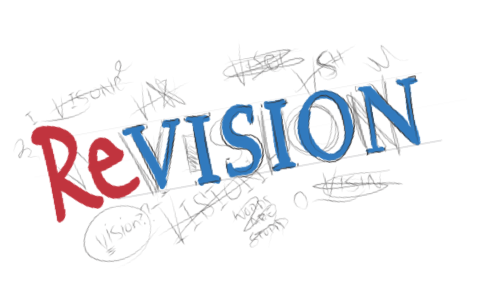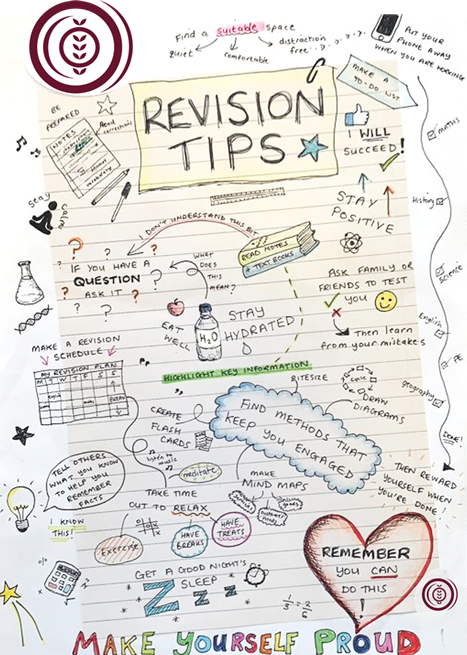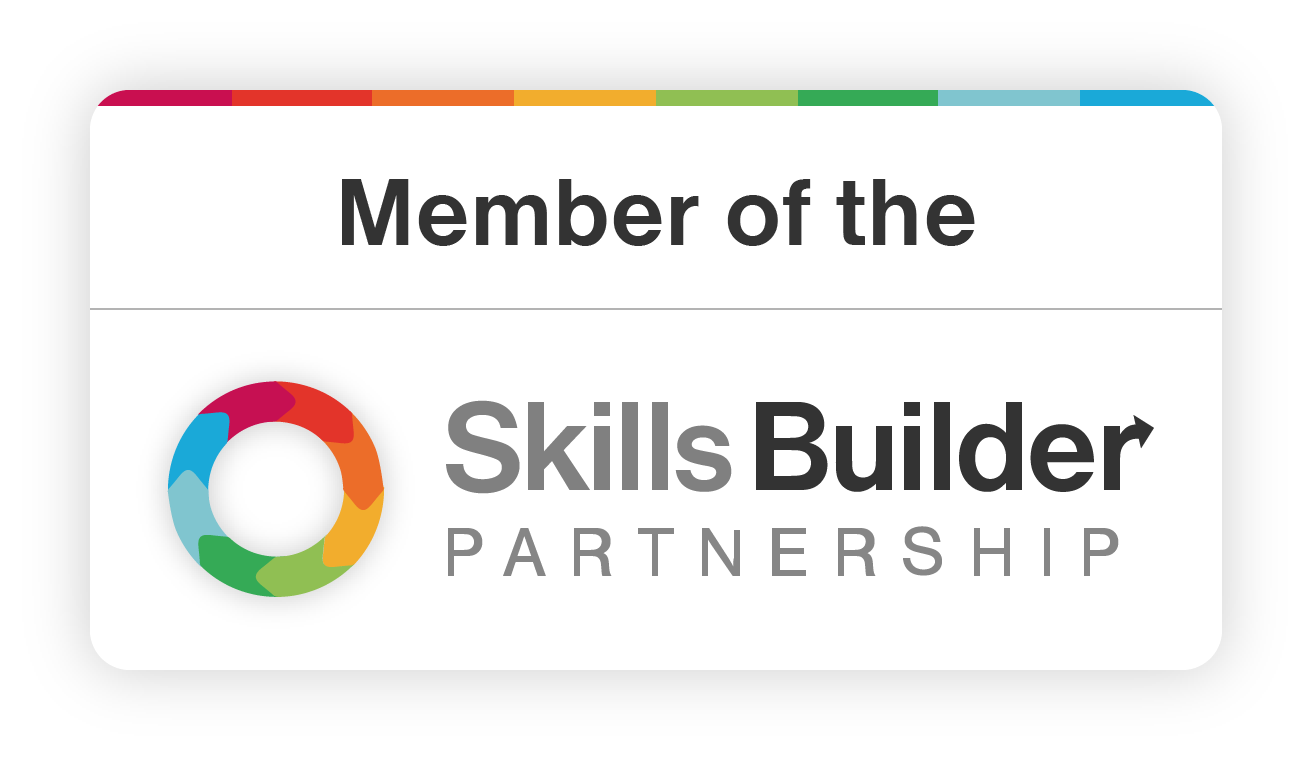Revision Advice

Study Tips for Students
Preparing for your GCSE’s can be a daunting prospect but the sooner you start, the more confident and exam ready you will be.
In this section of our website you will find a range of resources and advice to support you as you study towards success!
Revision — what works and what does not!
We all know the importance of revision and preparation for assessment and exam success, but how much do we know about what makes for effective revision? There are some very popular strategies that you will spend A LOT of time doing, yet they are proven to have little impact.
3 commonly used and poor revision techniques are:
- Highlighting
- Rereading texts
- Copying out notes
The reason these are so ineffective, is that they do not require much THINKING... and it is THINKING about things that make us remember them.
So what does work? Below are 3 of the most effective approaches to revision.
1 Distributed practice
Rather than cramming all of your revision for one subject into one block, it is much better to space this out, from right now, until the exams are over.
Why is this better?
Bizarrely, it is because this gives you time to forget. This means that when you come back to it a few weeks later, you will have to THINK harder, which helps you remember it better. By mixing up different topics together and continually revisiting them, you will be more successful at remembering and remembering quicker!

2. Testing, testing, testing...
This technique is pretty straight forward. You need to keep testing yourself (or each other) on what you have to learn and remember. This technique has been shown to have the highest impact, in terms of supporting recalling and remembering. Some ways in which you can do this are:
- Creating flashcards with one question and one answer on the back-keep testing!
How to Study Effectively with Flash Cards - College Info Geek
- Work through past exam papers (you can get these direct from exam board websites)
- Create ‘fill the gap’ exercises and come back to them later to practice
- Create multiple choice quizzes
- Use apps such as Quizzlet, Gojimo and many more
3. Interrogation
One of the best things that you can do to support your revision, is to ask why an idea or concept is true... and then answer! Ask each other, or be asked by your parents and carers.

For example:
In science, increasing the temperature can increase the rate of chemical reaction... why?
In geography, the leisure industry of seaside towns, like Barry Island in South Wales has deteriorated in the last 4 decades... why?
In history, in 1929 the American stock exchange collapsed. This supported Hitler’s rise to power... why?
So rather than just learning facts or ideas and reading them over and over, you should get into the habit of asking yourself WHY these things are true.
Year 11 Revision Timetable
Revision Tips
Here you will find a range of resources, top tips and advice to help you with your revision.

Top 10 tips form CGP revision guides:
Good advice form GCSE Bitesize:
https://www.bbc.co.uk/bitesize/articles/zw8qpbk
Student’s advice on revising effectively
How to revise for exams effectively | 10 Revision techniques that actually work!
Making effective flash cards
https://www.youtube.com/watch?app=desktop&v=mzCEJVtED0U
Note-taking advice



